In Type Knight, you fight skeletons, bats, wraiths and more via the awesome power of your rapid (and hopefully accurate) typing.
Note: Key provided by the developer.
Released last month, Type Knight appears to be the first game by this developer and took around 18 months to deliver the final version on Steam after several demos on Itch.
As the titular "Type Knight", you automatically walk through the graveyard while enemies approach from the right of the screen with words above their heads - type that word and your character delivers an oddly satisfying swipe of his sword to decimate them.
The game is split into sections, starting with two waves of skeletons, but rapidly adding bats, wraiths and finally a boss fight.
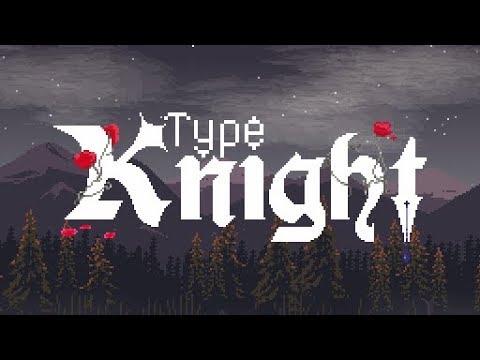
Direct Link
There are some really nice touches in this little gem. While retro, the graphics are quite pretty with parallax scrolling and some random weather effects. Animation is basic, but as I previously mentioned, also quite satisfying.
There are a few things I don't like, although at this price, that's to be expected. The game will only run in a window, and only in a 4:3 scale, which feels a little odd on today's widescreen monitors. I should also point out that while I've tagged it "educational", the game is quite unforgiving - I touch type at around 45 words per minute and I struggled to get past the first boss on the lowest skill level. The problem is that there's not much wiggle room for error. If you fail on a skeleton, you can become quickly mired by a second skeleton as you correct your first mistake. This is compounded by a lack of a "start word again" mechanic: you have to backspace your error as you would normally... meanwhile, bats might be swarming, and a wraith might also be asking for a defensive "red" word to be completed or you'll take even more damage!
Luckily, the game does offer one power up as you play - you get to assign a word to that power up and then you have three uses - type the word to defeat everything on the screen! Personally I'm fond of assigning "boom", but "help" works quite well, as does "wuss" and "argh". I'm reasonably certain that other four-letter words might also work pretty well!
The game also offers the ability to import your own word dictionary and play with that. You can even restrict certain characters from appearing at all. Finally, you can optionally play that new dictionary in classic mode, or in sequence.
This charming little game isn't going to change the world, but at £2.89/$3.99, Type Knight will while away an hour or two and who knows, maybe you'll become a faster typist as a result.
"retro arade" huh? Clever girl...Fixed.
"retro arade" huh? Clever girl...Fixed.
Too late, the zombie got you.
This is compounded by a lack of a "start word again" mechanic: you have to backspace your error as you would normally
If you go in Options -> Game, theres a setting "Keybinding "erase all"". I don't remember the default, I set mine to tab.
Aww you should have kept it, I didn't send a correction report as I wasn't sure if it was on purpose... but I thought it was a nice touch to have a typo in the headline for a spelling game regardless. :)"retro arade" huh? Clever girl...Fixed.
I could never finish Fahrenheit: Indigo Prophecy simply because I couldn't hit the buttons fast enough for their quick time events. This is unfortunate, because I liked the story line, and would have liked to know how it ended.
I don't think games need an "easy mode," but if I could just slow the game down a bit, then I could at least have some reasonable chance of completing it. I don't think that is too much to ask of developers.
Useful to know that there's a clear-all key bind. Dunno how I missed that!
I don't think games need an "easy mode," but if I could just slow the game down a bit, then I could at least have some reasonable chance of completing it. I don't think that is too much to ask of developers.
I think developers need to consider more user control over things like speed of input, damage done/received, how long a QT event gives you, etc. so as to avoid the stigma that "easy mode" carries with it in the gaming community. Honestly, there shouldn't be any shame in making the game more accessible for people who need it, or simply want it to seem like fun rather than work. But here we are.
I think CrossCode handles this very well, with a set of sliders (labled "Assists") for damage, enemy attack frequency, and puzzle timing, that you could adjust at any time during the game. Even during a boss battle. This gives lots of freedom, increases accessibility, doesn't affect the enjoyment of someone who doesn't want to touch them, and neatly sidesteps the idea that "easy mode" is a bad thing for some reason. Win-win!
I don't think games need an "easy mode," but if I could just slow the game down a bit, then I could at least have some reasonable chance of completing it. I don't think that is too much to ask of developers.
I think developers need to consider more user control over things like speed of input, damage done/received, how long a QT event gives you, etc. so as to avoid the stigma that "easy mode" carries with it in the gaming community. Honestly, there shouldn't be any shame in making the game more accessible for people who need it, or simply want it to seem like fun rather than work. But here we are.
I think CrossCode handles this very well, with a set of sliders (labled "Assists") for damage, enemy attack frequency, and puzzle timing, that you could adjust at any time during the game. Even during a boss battle. This gives lots of freedom, increases accessibility, doesn't affect the enjoyment of someone who doesn't want to touch them, and neatly sidesteps the idea that "easy mode" is a bad thing for some reason. Win-win!
I'll have to give CrossCode a try, then. I like that idea. I play all games in their easiest difficulty setting at first. Games that I have enjoyed greatly, I have replayed at higher difficulties. It's just nice to have that option.
I loved Transistor's version of "easy" mode. The base game is played evenly for a while, but you quickly accrue optional "Limiters" which change your, or your enemies capabilities, making each encounter harder. The flipside was that each Limiter added to the experience you accrue from each encounter, so playing a harder battle reaped slightly better rewards overall. You were in control at all times, and it felt seamless, because the Limiters were placed like Functions, so you didn't have to escape out to a control panel and change a slider from "normal" to "easy" - it was all done in context to the main game.Yeah, that was cool. And it was a fairly solid menu of limiters--some of them were like "Sure, I can totally handle that" and others I was thinking "Somewhere, there is a person who can handle this, but that person is definitely not me."
I loved Transistor's version of "easy" mode. The base game is played evenly for a while, but you quickly accrue optional "Limiters" which change your, or your enemies capabilities, making each encounter harder. The flipside was that each Limiter added to the experience you accrue from each encounter, so playing a harder battle reaped slightly better rewards overall. You were in control at all times, and it felt seamless, because the Limiters were placed like Functions, so you didn't have to escape out to a control panel and change a slider from "normal" to "easy" - it was all done in context to the main game.
To be fair, given the setting, going to a menu to make changes is in context for CrossCode.
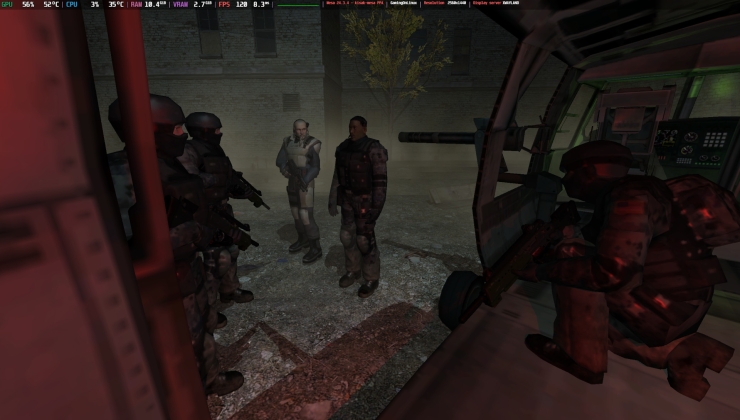
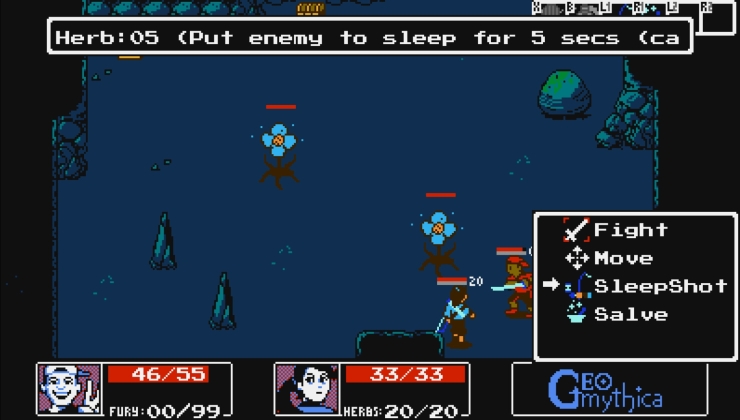
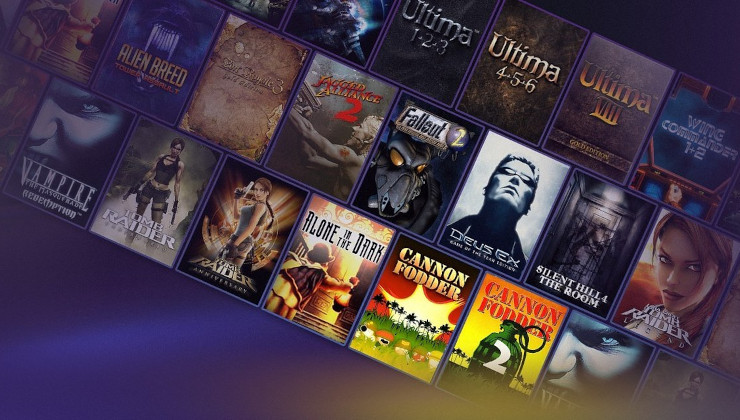
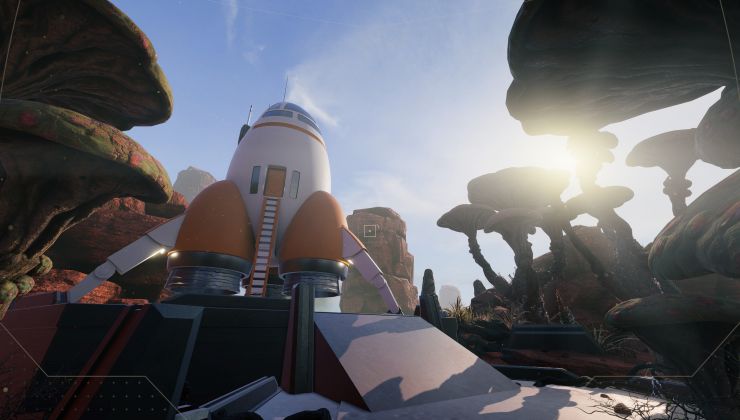




 How to set, change and reset your SteamOS / Steam Deck desktop sudo password
How to set, change and reset your SteamOS / Steam Deck desktop sudo password How to set up Decky Loader on Steam Deck / SteamOS for easy plugins
How to set up Decky Loader on Steam Deck / SteamOS for easy plugins
I also occasionally dabble a bit in Python, I do Internet Security for a living and finally, I'm a big fan of Neil Degrasse Tyson. And not just because he has a cool first name.
See more from me